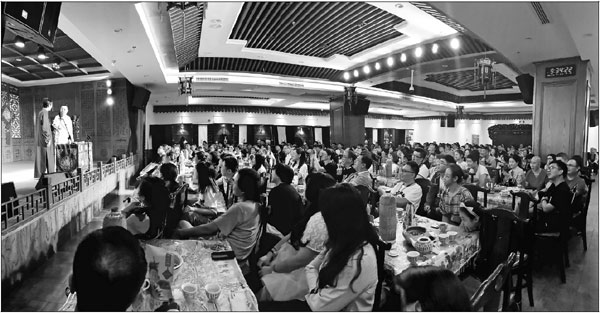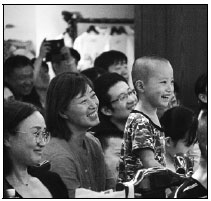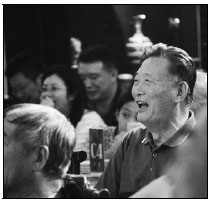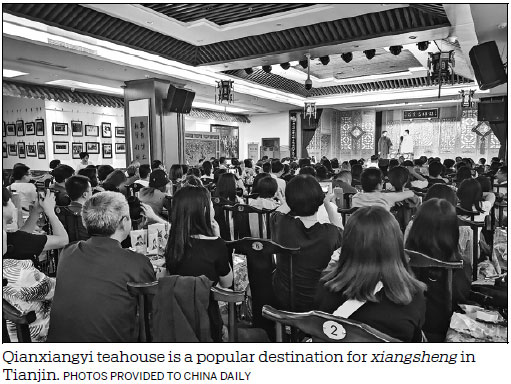A pot of tea, a few snacks and a bowl of laughs
The art of crosstalk has gone through crises in its 100 years of existence, but thanks to the persistence of many it is doing more than just surviving.
Guo Degang, who started studying xiangsheng when he was 7 and left his hometown of Tianjin to open his first club in Beijing in 1995, is credited with reviving crosstalk by giving sold-out shows, enjoyed by young and old alike. He gained movie-star-like fame, and his students, who are members of his xiangsheng performance group called Deyunshe, also drew a lot of attention.
His eldest son, Guo Qilin, also a xiangsheng performer, has expanded his career into reality shows, TV dramas and movies, and is a constant object of attention among young fans and paparazzi. Besides Guo, Miao Fu and Wang Sheng, two xiangsheng performers from Tongchuan, Shaanxi province, also gained a fan base in the country with their Shaanxi dialect.

In the first half of the 20th century xiangsheng was performed mainly in teahouses. After the founding of New China in 1949 most of the comedians were recruited into State-run performing arts troupes and xiangsheng shows in teahouses gradually disappeared. 
However, with teahouses mushrooming in recent years, there has been a revival. The old art form is also widely broadcast on TV and radio stations. More than 30 teahouses in Tianjin offer xiangsheng shows every day.
"Tianjin has a great fan base for xiangsheng because of its long history with the old art form," says Yan Chang, 24, who was born and raised in Luoyang, Henan province, and spent four years in Tianjin while studying public communication at Nankai University.
"Tianjin people are born with humor, and even the local dialect is rhythmic and fun to hear," Yan says.
She says she loves talking with taxi drivers, who tune into xiangsheng radio programs everyday as a way of relaxing during their long hours of working. 
"The shows in teahouses have become so popular that it is often hard to get a ticket," says Zhou Yue, who works with Qianxiangyi teahouse, a popular destination for xiangsheng in Tianjin.
The teahouse, established more than 100 years ago, offers 14 xiangsheng shows a week, with ticket prices ranging from 80 yuan ($11) to 120 yuan. From Monday to Friday, 80 percent of the seats are full, and during the weekend it enjoys a full house.
"Audiences not only come from Tianjin but also Beijing and other cities," Zhou says. "These are people who want to enjoy authentic Tianjin xiangsheng. With a pot of tea and some snacks, like watermelon seeds and mahua (fried dough twists), you can have a great day with laughs because xiangsheng makes you happy."

(China Daily Global 11/27/2019 page16)


















